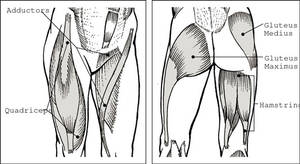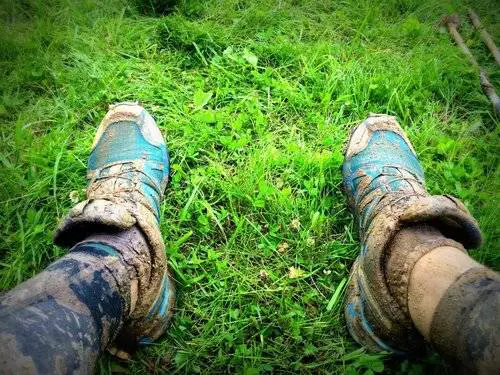Experiencing a runny nose after running is surprisingly common, even among elite athletes. This condition is referred to medically as exercise-induced rhinitis. It’s a non-allergic reaction where nasal congestion, sneezing, or a watery discharge is triggered by physical activity, especially running in cold or dry air.
Most Common Symptoms Reported by Runners with Post-Run Runny Nose
This chart outlines the most frequently reported symptoms among runners who experience a runny nose after exercise. Runny nose and sneezing top the list, suggesting exercise-induced rhinitis may be common and multifactorial in origin.
What Causes a Runny Nose During or After Running?
A runny nose post-exercise can result from multiple factors — some environmental, others physiological. Here’s a deeper breakdown:
- Airborne Irritants: Exposure to air pollution, pollen, or vehicle exhaust can activate nasal nerve receptors, prompting mucus production. This is especially common for urban runners or those exercising near high-traffic areas.
- Cold or Dry Air: In cooler climates or dry conditions, your nose works overtime to warm and humidify the air you breathe. That leads to excess mucus generation. This reaction is stronger when the body isn’t properly acclimated or warmed up.
- Increased Airflow Through the Nose: During aerobic exercise, you’re breathing faster and deeper. This pulls in more environmental triggers, causing mechanical irritation of nasal mucosa and excess secretions — basically, your nose hits overdrive.
- Underlying Allergies: For individuals with allergic rhinitis, exercise can exacerbate symptoms due to increased contact with allergens in stirred-up air. Even if you’re not running through a flower field, pollen concentration can be high, especially in early mornings or after mowing days.
- Exercise Intensity: High-intensity workouts often generate more symptoms than light jogging. That’s because the body experiences greater respiratory demand, and the sympathetic nervous system response can affect nasal blood flow and gland secretion.
- Sudden Environmental Changes: Transitioning from a warm indoor space to cold outdoor air shocks nasal tissues, increasing fluid secretion. This is often seen in runners during winter mornings or when training in mountainous areas.
- Hydration Status: Mild dehydration can dry out mucous membranes, which paradoxically triggers a compensatory overproduction of nasal mucus during or after exercise.
- One-Off vs. Patterned Occurrence:
- If the runny nose happens once, especially after a particularly windy, dusty, or cold day — don’t overanalyze. It’s likely a one-time, environmental response.
- If it happens consistently after workouts, and you also notice headache, facial pressure, fatigue, or cough, the cause may be chronic rhinitis, sinus inflammation, or even early-onset asthma.
- If post-run symptoms appear with dizziness, shortness of breath, or unusual fatigue, this may indicate a more systemic issue, not just nasal. These symptoms shouldn’t be ignored.
Medical Conditions Overlapping with Exercise-Induced Rhinitis in Runners
| Condition | Prevalence (%) |
|---|---|
| Allergic Rhinitis | 66% |
| Non-Allergic Rhinitis | 19% |
| Asthma | 12% |
| Sinusitis | 3% |
This table summarizes conditions commonly co-occurring with exercise-induced rhinitis in runners. Allergic rhinitis is the most prominent, followed by non-allergic rhinitis and asthma, while sin
Watch for these signs that might suggest something more complex:
- Persistent congestion not relieved by saline or nasal spray
- Drip accompanied by sore throat or ear fullness
- Symptoms that get worse in specific environments (e.g., forest trails or polluted roads)
- Increased need for tissues during non-exercise times
Understanding the type, timing, and frequency of nasal symptoms is crucial. Your body gives clues — and when they show up predictably around workouts, it’s worth investigating patterns and possible comorbid conditions like allergic rhinitis or even mild chronic sinusitis.
Is It Something to Worry About?
In most cases, a runny nose after running is more of a minor annoyance than a red flag. Think of it like tearing up in cold wind — your body’s just trying to protect itself. If you’re dealing with a clear, watery discharge that starts when you run and stops shortly after, and there’s no pressure or discomfort, that’s textbook exercise-induced rhinitis. No big deal — it’s like your nose just wants to join the cardio.

However, there are times when it’s not just a harmless side effect. If your symptoms include:
- Facial pressure or pain, especially around the cheeks and eyes
- Thick, discolored mucus (yellow or green)
- Fever, fatigue, or coughing
- Postnasal drip that lingers all day
…then it might be something more serious, like acute sinusitis or a respiratory infection. These require medical attention, especially if symptoms persist beyond 10 days or worsen after initial improvement.
Another sign it’s time to check in with a doctor: if nasal congestion causes difficulty breathing or if your performance suffers noticeably during workouts. In rare cases, symptoms may overlap with exercise-induced asthma, which affects both nasal and lung function.
To summarize:
- Clear and temporary? Usually harmless.
- Persistent, painful, or producing thick mucus? Worth getting checked.
A little awareness goes a long way. Understanding the difference between benign and bothersome can help you stay focused on your training — without tissues in every pocket.
Diagnostic Tools: How It’s Identified
| Diagnostic Method | Description | Accuracy (1–10) | Average Cost (USD) |
|---|---|---|---|
| Nasal Endoscopy | A tiny camera examines nasal passages | 9/10 | $250–$800 |
| Allergy Testing | Identifies triggers like pollen or dust | 8/10 | $150–$300 |
| Spirometry | Measures lung function to rule out asthma | 7/10 | $40–$100 |
| CT Scan of Sinuses | Reveals inflammation or blockages | 10/10 | $500–$1500 |
Modern Treatments and Relief Options
- Nasal Sprays
- Cromolyn sodium (NasalCrom): A mast cell stabilizer, useful for prevention. Best taken 15–20 minutes before activity. Low side-effect profile.
- Effectiveness: 6.5/10
- Cost: Around $12–$20 (over-the-counter)
- Ipratropium bromide (Atrovent Nasal Spray): Anticholinergic spray specifically designed for runny nose without allergy. Reduces mucus by blocking acetylcholine receptors in nasal glands.
- Effectiveness: 9/10
- Cost: $25–$45 with prescription
- Cromolyn sodium (NasalCrom): A mast cell stabilizer, useful for prevention. Best taken 15–20 minutes before activity. Low side-effect profile.
- Antihistamines
- Loratadine (Claritin) and Fexofenadine (Allegra): These second-generation antihistamines are non-sedating and effective even for non-allergic rhinitis in some cases.
- Effectiveness: 7.5/10 for allergic rhinitis; 5/10 for non-allergic
- Cost: $10–$25 for a month’s supply (OTC)
- Levocetirizine (Xyzal): Slightly more sedating but can be beneficial for nighttime runners who need symptom control overnight.
- Loratadine (Claritin) and Fexofenadine (Allegra): These second-generation antihistamines are non-sedating and effective even for non-allergic rhinitis in some cases.
- Barrier Masks or Buffs
- Brands like Buff®, Under Armour®, or Nike® offer breathable cold-weather gear that helps trap moisture and filter out airborne irritants.
- Effectiveness: 8/10 (especially in cold/dry air)
- Cost: $15–$40 depending on brand and features
- Brands like Buff®, Under Armour®, or Nike® offer breathable cold-weather gear that helps trap moisture and filter out airborne irritants.
- Hydration and Saline Rinses
- Products such as NeilMed® Sinus Rinse or Simply Saline® are effective at flushing out particles post-run. Warm saline helps soothe irritated tissues and reduce post-exercise drip.
- Effectiveness: 7/10 (as a maintenance method)
- Cost: $7–$15 per bottle or rinse kit
- Products such as NeilMed® Sinus Rinse or Simply Saline® are effective at flushing out particles post-run. Warm saline helps soothe irritated tissues and reduce post-exercise drip.
- Combination Therapy
- Many runners benefit from layering treatments: for instance, using a nasal spray before the run and saline rinse afterward, while avoiding triggers like cold air or pollen.
- Effectiveness: Up to 9/10 when customized to personal triggers
- Cost: Variable, $20–$60 monthly depending on methods used
- Many runners benefit from layering treatments: for instance, using a nasal spray before the run and saline rinse afterward, while avoiding triggers like cold air or pollen.
Always consult a healthcare provider before beginning regular medication, especially for children or individuals with chronic sinus or respiratory issues.
Top Coping Strategies Used by Runners with Runny Nose Symptoms
This chart presents the most common coping strategies adopted by runners who experience runny nose symptoms. Nasal sprays and protective gear like buffs are among the most used, followed by allergen avoidance and medication-based approaches.
Case Studies from the U.S.
- A 34-year-old female in Denver reported chronic post-run nasal drip during spring. Allergy testing revealed sensitivity to local pollens. Switching her runs to early morning and using Claritin resolved 80% of symptoms.
- A 47-year-old male in Boston noticed increased nasal discharge when jogging in the winter. Using a fleece face cover and Atrovent spray brought significant relief. His ENT later confirmed a non-allergic rhinitis diagnosis triggered by cold exposure.
- A 29-year-old marathon trainee in Seattle experienced persistent nasal drainage and sneezing after high-mileage sessions. Despite no history of allergies, testing revealed vasomotor rhinitis. Incorporating Ipratropium bromide spray pre-run and saline rinses post-run helped him finish his training with minimal discomfort.
- A 52-year-old recreational runner in Phoenix struggled with post-run drip during dry, windy months. He reported worsening symptoms when running near construction zones. After shifting his routes to tree-lined neighborhoods and adding a reusable running mask, his symptoms dropped dramatically.
- A 41-year-old fitness coach in Minneapolis found his nose would start running within minutes of stepping outside in winter. After trial and error with antihistamines, he found that a short indoor warm-up and nose-breathing techniques significantly minimized the response. He now shares this as a tip with his clients who train outdoors in the cold.
Preventive Steps for Runners
| Preventive Action | Effectiveness | Notes |
|---|---|---|
| Warm-up Indoors | High | Do 3–5 minutes of jumping jacks, high knees, or dynamic stretching to activate circulation before heading outside. Avoid long routines that delay your run. |
| Monitor Air Quality | Moderate | Check apps like AirNow or local AQI readings. Avoid running when AQI > 100. Opt for indoor treadmill runs or reschedule. |
| Use Nasal Sprays Pre-run | High | Apply Ipratropium bromide 15 minutes before the run. For allergic individuals, antihistamine sprays can be helpful. |
| Switch Running Routes | Moderate | Choose areas with lower traffic or greenery (parks, trails). Avoid industrial zones or high-pollen fields, especially during allergy season. |
| Hydration Pre-run | Moderate | Drink at least 8–10 oz (240–300 mL) of water 15–20 minutes before running. Well-hydrated mucosa is less reactive to irritants. |
| Short Breathing Exercises | Moderate | Try 1–2 minutes of diaphragmatic breathing before stepping out. This helps warm the nasal airways and reduce shock from cold air. |
These tailored measures are designed to be realistic and practical, especially for runners with busy lifestyles. No one wants to spend half an hour prepping to jog — efficiency matters.
Editorial Advice
Reyus Mammadli, healthcare advisor, recommends: “If your nose runs every time you do cardio, don’t just shrug it off. It might be a sign of allergic or non-allergic rhinitis, both of which can be managed with modern, over-the-counter solutions. Prevention and preparation are key.”
Our editorial team also suggests runners keep track of environmental conditions and symptoms to help determine specific triggers. If symptoms persist or worsen, a visit to an ENT specialist is a smart next step.
Sources & References
- American Academy of Allergy, Asthma & Immunology (AAAAI)
- Exercise-induced rhinitis overview and symptom patterns
- www.aaaai.org
- Mayo Clinic
- Nonallergic rhinitis causes, diagnosis, and treatment strategies
- www.mayoclinic.org
- National Institutes of Health (NIH) – MedlinePlus
- Detailed clinical information on allergic and non-allergic rhinitis
- medlineplus.gov
- Cleveland Clinic
- Insights into chronic rhinitis, sinusitis, and nasal sprays
- my.clevelandclinic.org
- Johns Hopkins Medicine
- Sinus-related complications from environmental exposure
- www.hopkinsmedicine.org
- PubMed/National Library of Medicine
- Peer-reviewed studies on exercise-induced nasal symptoms
- pubmed.ncbi.nlm.nih.gov
- Environmental Protection Agency (EPA)
- AQI standards and air quality impact on respiratory health
- www.airnow.gov








